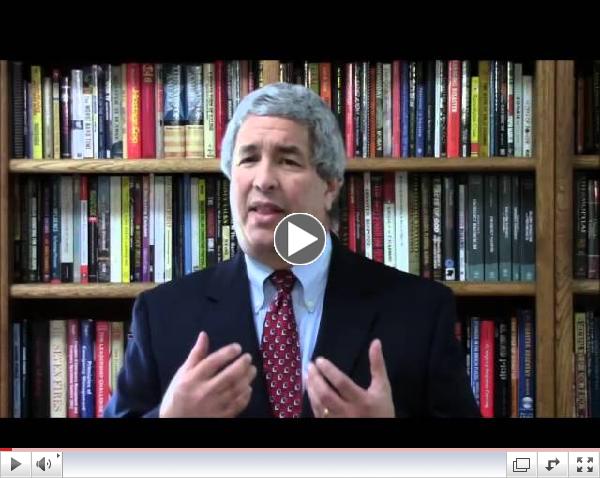|
Exploring Emergency Management & Homeland Security
|

Updated ICS Training Courses
A Critical Review
by Timothy (Tim) Riecker
It's been quite a while since I've last posted, but, as I'm sure many of my followers expected, the updated ICS training materials would bring me out of my absenteeism. For those not aware, in March of this year, FEMA released IS-200.c, an updated Basic ICS course; and earlier this week released updated ICS 300 and ICS 400 courses. Let's take a look at them...
First, ICS 200. The biggest indicator of what a course is about is the course objectives, so let's compare.
|
ICS 200.b Objectives
|
ICS 200.c Objectives
|
Describe the Incident Command System organization appropriate to the complexity of the incident or event.
Use ICS to manage an incident or event |
Describe how the NIMS Management Characteristics relate to Incident Command and Unified Command.
Describe the delegation of authority process, implementing authorities, management by objectives, and preparedness plans and objectives.
Identify ICS organizational components, the Command Staff, the General Staff, and ICS tools.
Describe different types of briefings and meetings.
Explain flexibility within the standard ICS organizational structure.
Explain transfer of command briefings and procedures.
Use ICS to manage an incident or event.
|
Obviously, the updated course has more objectives. Is this better? When we compare the relative content of the two courses, it's pretty clear, first of all, that ICS 200.b only having two terminal learning objectives was the result of poor instructional design. What is laid out in ICS 200.c is really how the previous version should have been. The content between the two courses is largely the same, with the major exception of the updated course having a capstone activity. Comparing the classroom time-plan, the previous version clocks in at 735 minutes (without breaks), while the updated version is almost two hours longer at 845 minutes, bringing the new course to a full two days of course delivery vs the day and one half which the course has been throughout its history. The inclusion of a capstone activity as a standard in this course absolutely makes sense, helping the material become more relevant to students and starting to bring us into the Application domain of learning.
___________________________________________
___________________________________________
Tim Reicker is a founding member, partner and principal consultant with Emergency Preparedness Solutions, LLC, a private consulting firm serving government, businesses, and not for profit organizations in various aspects of emergency and disaster preparedness.
|
|
Bernstein Crisis Management
|
 3 Expert Tips To Help You Through Your Media Interview Or Public Statement 3 Expert Tips To Help You Through Your Media Interview Or Public Statement
By Erik Bernstein
Having trained hundreds of clients for difficult speaking situations like media interviews or angry shareholder meetings we can tell you there's one constant - people are scared of standing up in front of strangers and talking about bad news. It's a bit surprising the first few times you see an individual who was lighting up the room with chatter and engagement prior to training's start suddenly struggle to get a few sentences out when the camera turns on and the lights go up, but it quickly becomes clear that this is simply a part of the human condition for most.
According to Psychology Today, people are more afraid of public speaking than death. I see you nodding your heads out there, and to be honest when I first started practicing the skill I felt the same. While it's perfectly fine to sweat having to speak in public or to the press, if you're the one tasked with representing your organization in a tough situation you can't let it show.
Try these 3 tips on public speaking from Bernstein Crisis Management
media training experts:
- Have a plan. Even the best speakers are going to have a bad time if they go into an interview and wing it. Know what you want your audience to come away remembering and how you'll get them there. Remember they may not believe you on reputation alone and that you'll need actual facts, figures, or outside opinions to support your points.
- Avoid repeating negatives. A classic trap those facing tough questions fall into is repeating the negative. If someone asks, "Why did your company choose to lay off 800 employees?", the last thing you want to answer with is, "We chose to lay off 800 employees because...". Consider how to rephrase answers to predictable questions before the interview so you're ready.
- Remember compassion. This is the single element missing in most speakers during crisis. Unfortunately, tough times are when you need it most. Make sure people know you understand why they're upset, scared, or angry. Until you can convince them you "get it" most audiences simply won't listen, or even worse will actively rally against anything you say.
Perhaps the most important tip of all is that being good at delivering media interviews or public speaking takes PRACTICE! Grab a friend, colleague, family member, or even a handy phone and mirror to do some recording. It will be some combination of embarrassing and scary to start, but that's OK. Keep at it and you'll quickly gain confidence in this much-needed (and often-overlooked) crisis management skill.
© 2019 - Erik Bernstein
Erik Bernstein is Vice President of Bernstein Crisis Management, a specialized firm dedicated to providing holistic strategies for managing crisis situations.
|
|
|
| A Square Meal - Andrew Coe and Jane Ziegelman |
This month's book, A Square Meal, looks at how the government dealt with hunger during the Great Depression though social engineering. This hour-long lecture by the authors summarizes the key points of the book. It's a fascinating look at the social history of the time and how the application of science and the use of the media changed the eating habits of Americans and the bias against government handouts. |
The following are excerpts from my blog
Canton on Emergency Management. Please visit my blog to see the rest of my articles.
Living in fear can cause us to alter our lives to react to non-existence threats that have no basis in reality.
|

M
y Blogs
Follow Me
|
|

Welcome to the May edition of Emergency Management Solutions.
This month I offer some perspectives on project management from a consultant's perspective while Tim reviews the updated ICS training courses and Eric offers advice on surviving media interviews. I hope you find the articles useful and informative.
Regards,
|
|
_
________________________________________________
Why Are Your Projects Always Late?
_________________________________________________
One of the requirements frequently included in a request for proposal (RFP) is a timeline for project completion. Sometimes the key dates for this timeline are specified in the RFP; other times, the consultant is free to estimate the time required to complete the project and its various phases.
It really doesn't matter, though. It is rare that a project ends up adhering to the proposed timeline. Sometimes the reason for the delay is an unanticipated emergency affecting either the client or the consultant. But nine times out of ten, the problem lies with you, the client.
______________________________
_______________________
________
If you are having trouble viewing my featured article, try clicking on the link at the top of the page. You can always find my articles in the white paper section of my blog site, Canton on Emergency Management.
|
|
Resources
NIMS Alert 11-19: FEMA Releases the Senior Leaders Toolkit for Incident Response
On May 7, 2019 FEMA's National Integration Center released a Senior Leader Toolkit, a resource that both emergency management and senior leaders can use to discuss roles and responsibilities during incidents. The templates in the toolkit include an Elected Officials/Senior Executives Quick Reference Guide, a Department Head Quick Reference Guide, and a NIMS Senior Leader Briefing Template. The toolkit is available on the FEMA website at
www.fema.gov/national-incident-management-system.
IAEM Scholarship
The
IAEM Scholarship Program provides scholarships through a competitive process to full-time undergraduate and graduate students, and part-time graduate students, working on degrees in emergency management, disaster management, or closely related fields of study. Awardees are selected based on applications and required complimentary materials. To be considered for an award in this year's program, visit the new online scholarship application portal and review the application instructions. Submit the appropriate application and documentation no later than 5:00 p.m. EDT on June 12, 2019. A login and password are necessary to complete the application. Individuals who do not have an IAEM account will be prompted to register (at no cost) prior to completing the application. Registration provides applicants access to update the application and provide additional documentation prior to the deadline. Direct your questions to Scholarship Program Director
Dawn M. Shiley.
___________________________________
Professional Development Opportunities
June 3-6, 2019
FEMA Emergency Management Institute
Emmitsburg, MD
Workshops, plenaries, and breakout sessions highlighting how to build, engage, and amplify the work of the emergency management academic community while focusing on diversity, inclusion, and unity of effort.
Broomfield, CO
The theme of the 2019 Workshop will be Convergence. Explore how we come together to study hazards and disasters, apply the knowledge that's generated, help one another, build community capacity, implement meaningful policy, and envision a future that leads to reduced disaster risk and improved social well-being.
Nov. 15-20, 2019
Savannah, Georgia
The goal of the IAEM Annual Conference is to improve knowledge, competency level and collaborative skills. IAEM accomplishes this by attracting relevant high-profile speakers to address current topics and practical solutions.
|
|
 A Square Meal: A Culinary History of the Great Depression
A Square Meal: A Culinary History of the Great Depression
By Jane Ziegelman and Andrew Coe
The title of this book is somewhat misleading and would lead you to think it has nothing to offer an emergency manager. However, the real focus of the book is how the government dealt with hunger during the Great Depression.
Providing relief to the millions of starving Americans required changing people's attitude towards government food "charities" and led to a government-sponsored campaign using the media to change eating habits. Government programs were based on the application of nutritional science to the American diet and gave rise to the dietary guidelines still in use today (albeit significantly modified).The increase in urban populations and the introduction of processed foods placed an emphasis on speed and convenience and resulted in the homogenization of the American diet and the decline of regional cuisine.
This a fascinating and well written book that provides insight into how a coordinated campaign can be used by the government to change public attitudes.

______________________________________
|
Emergency Management: Concepts and Strategies for Effective Programs
Second Edition
AVAILABLE NOW!
|
|
Need a speaker for your next conference? I offer keynotes, seminars and workshops.
 |
|
Three Reasons Why I'm the Right Speaker for Your Conference
|
|
|
Speaking Engagements
Learning From The Past: What We Remember, What We Forget
November 19, 2019
Savannah, GA
|
|
| |
|